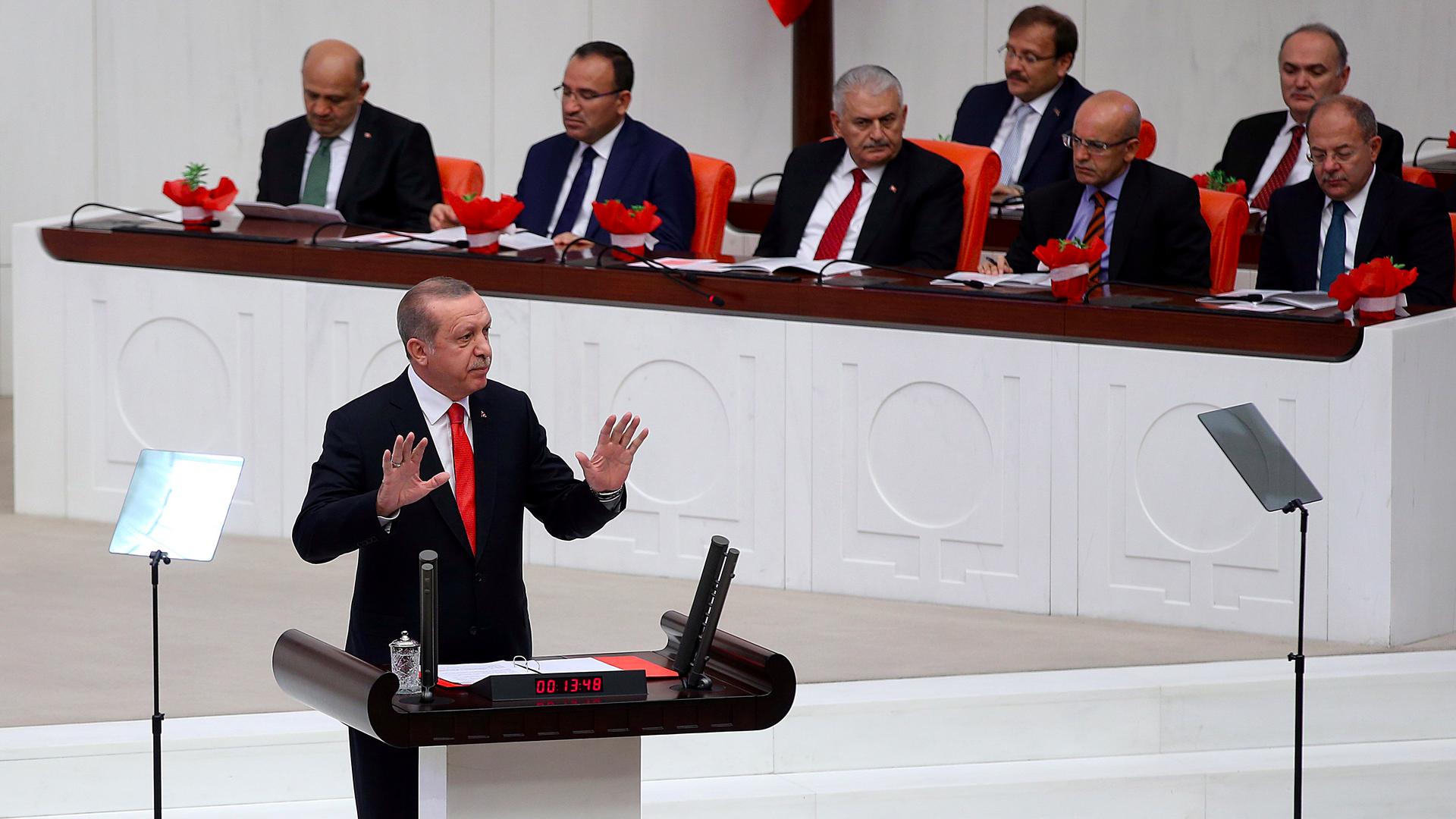Turkey no longer needs to join the European Union but will not unilaterally abandon the stalled EU accession talks, President Recep Tayyip Erdogan said Sunday, as he criticised the bloc for delaying the country’s accession.
“In reality, we actually no longer need EU membership, but if the EU wants to make a leap forward there is only one way and that is by granting Turkey membership,” the Turkish president said.
Erdogan, speaking at the opening ceremony for the Turkish parliament’s third legislative session, also blasted the bloc for failing to cooperate with Turkey on a number of issues, including the fight against terrorism.
Turkey’s 12-year-long accession talks have ground to a halt, with the EU especially critical of Ankara’s crackdown following a failed coup last year.
Ankara says EU states failed to appreciate the gravity of the threat which Turkey faced, and did not respond to requests to extradite coup suspects.
“The EU failed us in a fight against terrorism,” Erdogan said on Sunday, though he also said the bloc still needed Turkey.
President Erdogan during his speech also reiterated that the illegitimate referendum held in northern Iraq was against the Iraqi constitution.
“We will never turn a blind eye to unrest well beyond our borders which will create a permanent threat both for Iraqi and Turkish nations and the countries in the region,” Erdogan said.
Erdogan also added that Turkey would never allow any threat against the ethnically-mixed city of Kirkuk, which is one of the territories disputed between the central Iraqi government and Kurdish Regional Government (KRG).
Monday’s poll saw Iraqis in KRG-controlled areas – and in a handful of territories disputed between Erbil and Baghdad, including ethnically mixed Kirkuk and Mosul – vote on whether or not to declare independence from Iraq’s central government.
According to preliminary figures released by the KRG, almost 93 percent of voters cast ballots in favour of independence from Baghdad.
The illegitimate referendum in northern Iraq had faced sharp opposition from most regional and international actors, many of whom had warned that the poll would further destabilise the Middle East.










Discussion about this post